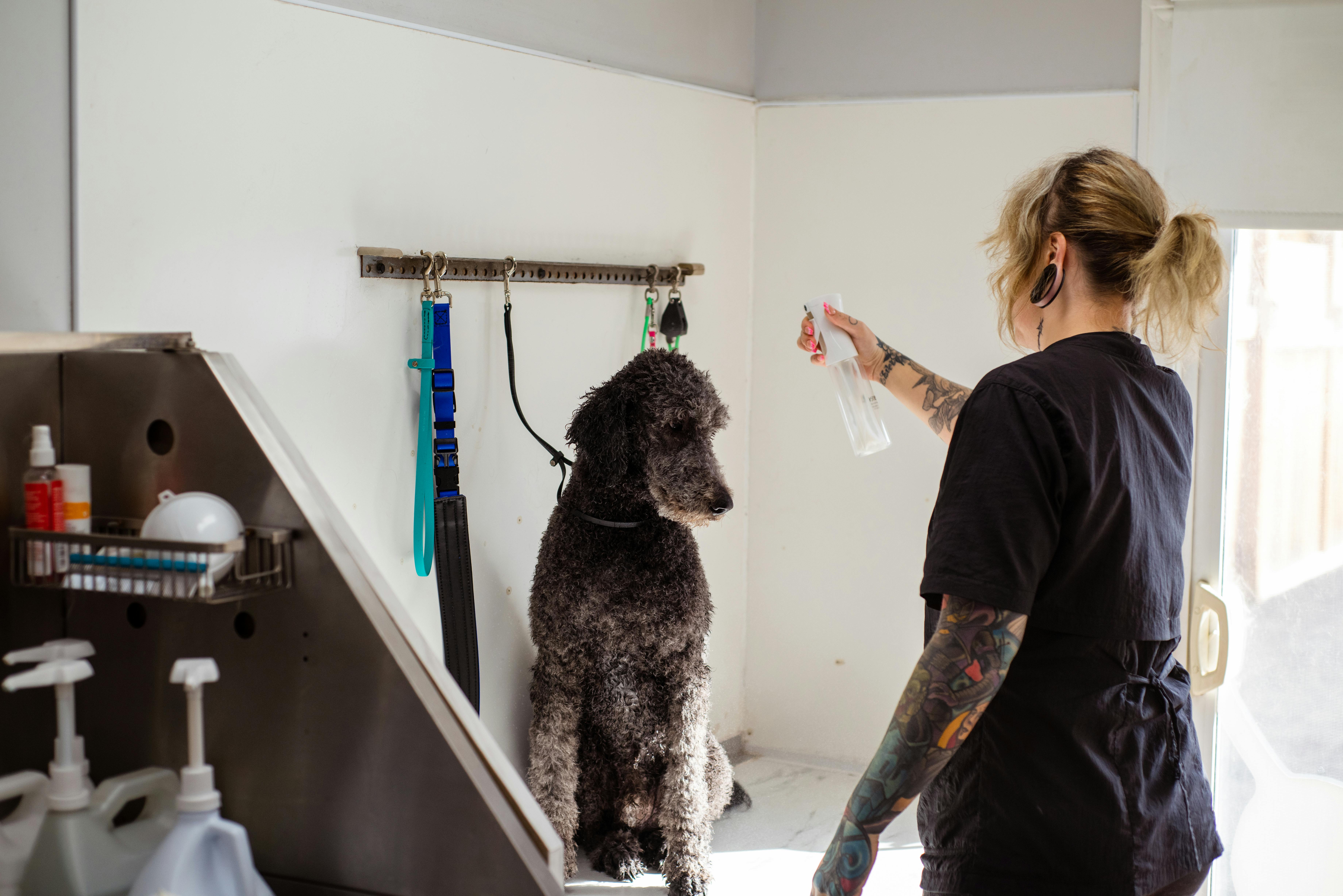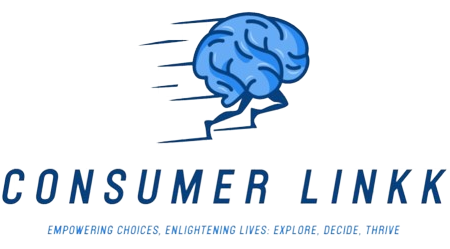In “Work from Home: The Ultimate Guide to Freelance Jobs,” you’ll find all the information you need to start your journey as a freelance worker. Whether you’re looking for flexible work hours, the ability to work from the comfort of your own home, or just a way to make some extra income, this guide has got you covered. From data entry to medical billing, we’ll explore different freelance job opportunities that you can do from home and even on your phone. With engaging articles and tempting call-to-action phrases, you’ll be motivated to click on the links and discover the perfect freelance gig for you. So let’s get started on this exciting journey together!

Introduction to Freelance Jobs
What are freelance jobs?
Freelance jobs are a type of employment where individuals work independently on a project basis, rather than being tied to a specific company or employer. As a freelancer, you have the freedom to choose your clients, set your own rates, and work on projects that align with your skills and interests. With the rise of technology and the internet, freelance jobs have become increasingly popular, allowing people to work from the comfort of their own homes.
Benefits of freelance jobs
There are several advantages to working as a freelancer. Firstly, the flexibility of freelance jobs allows you to have control over your own schedule. You can work at any time that suits you, whether that’s early in the morning or late at night. This flexibility also allows you to balance your work with personal commitments, such as taking care of your family or pursuing other hobbies.
Secondly, freelance jobs often offer the possibility of higher income potential compared to traditional employment. As a freelancer, you have the freedom to set your own rates and negotiate with clients. You can also take on multiple projects simultaneously, increasing your earning potential.
Lastly, freelance jobs provide the opportunity to work on a variety of projects and with different clients. This can be intellectually stimulating and allows you to continuously learn and develop new skills. It also gives you the chance to build a diverse portfolio, which can be beneficial for your future career prospects.
Rise of work from home opportunities
The COVID-19 pandemic has accelerated the trend towards remote work and work from home opportunities. Many companies have transitioned to online operations, leading to an increased demand for freelance workers who can provide their services remotely. This shift has opened up a wide range of remote freelance jobs that can be done from anywhere, as long as you have a computer and an internet connection. Whether you’re a writer, designer, developer, or consultant, there are numerous freelance opportunities available that allow you to work from the comfort of your own home.
Types of Freelance Jobs
Writing and Editing
If you have a way with words, freelance writing and editing can be a great career choice. There is a high demand for content creation, including blog posts, articles, website copy, and social media content. As a freelance writer or editor, you can work for various clients across different industries, researching and producing high-quality written content that meets their needs.
Graphic Design and Digital Art
Freelance graphic design and digital art jobs are perfect for creative individuals with a flair for visual communication. From designing logos and branding materials to creating illustrations and animations, there are endless possibilities in the world of graphic design. With the rise of e-commerce and digital marketing, the demand for talented graphic designers and digital artists has skyrocketed.
Web Development and Coding
If you’re tech-savvy and have a passion for coding, freelance web development can offer exciting opportunities. Web developers create and maintain websites, ensuring they are visually appealing, functional, and user-friendly. With the increasing importance of online presence for businesses, freelance web developers are in high demand.
Virtual Assistance
Virtual assistants provide administrative support remotely, helping businesses and individuals with tasks such as scheduling appointments, managing emails, and handling customer inquiries. As a virtual assistant, you can work on a flexible schedule and offer your services to clients from all around the world.
Translation and Language Services
If you are bilingual or multilingual, freelance translation and language services can be an excellent option. With globalization, the need for translation services has grown significantly. Freelance translators work on translating various types of documents, such as legal contracts, marketing materials, and web content, to ensure effective communication between different languages.
Social Media Management
In the age of social media, businesses need professionals who can effectively manage their online presence and engage with their audience. Freelance social media managers handle tasks such as creating and scheduling posts, managing ad campaigns, and analyzing social media metrics. If you have a knack for social media and understand how to create engaging content, this can be a rewarding freelance career.
Data Entry and Transcription
Data entry and transcription jobs are ideal for individuals who have strong attention to detail and excellent typing skills. Freelance data entry workers input and organize data into databases, spreadsheets, or other systems. Transcriptionists listen to audio recordings and convert them into written documents. These roles require accuracy and the ability to work efficiently.
Online Tutoring
If you have expertise in a particular subject, freelance online tutoring can be a fulfilling way to share your knowledge and help others. With the increasing popularity of e-learning, there are various platforms where you can offer tutoring services to students of all ages, from elementary school to university level.
Photography and Videography
Freelance photographers and videographers capture and create visual content for a wide range of purposes, from weddings and events to advertising campaigns and documentaries. If you have a passion for photography or videography, freelance work in this field allows you to showcase your creativity and collaborate with clients to bring their vision to life.
Virtual Event Planning and Management
With the rise of virtual events, freelance event planning and management has become an in-demand skillset. From organizing webinars and conferences to coordinating online workshops and networking events, freelance event planners play a crucial role in ensuring the success of virtual gatherings.
Essential Skills and Qualifications
Communication skills
As a freelancer, effective communication is key to understanding client requirements, presenting your ideas, and building strong relationships. Excellent written and verbal communication skills will enable you to convey your message clearly and professionally, regardless of the medium or platform you are using.
Time management and organization
Managing your time and staying organized is essential when working as a freelancer. You will need to juggle multiple projects, deadlines, and client expectations. Developing strong time management skills and using tools such as calendars, to-do lists, and project management software can help you stay on top of your workload.
Technical skills
Depending on the type of freelance job you pursue, you may need to possess specific technical skills. For example, web developers need proficiency in programming languages like HTML, CSS, and JavaScript, while graphic designers require knowledge of design software such as Adobe Photoshop and Illustrator. Identify the technical skills relevant to your chosen field and invest time in mastering them.
Industry-specific knowledge
To excel in your freelance career, it’s important to stay up to date with industry trends and developments. Continuously educate yourself about the latest tools, technologies, and best practices in your field. This knowledge will not only enhance the quality of your work but also enable you to provide valuable insights and advice to your clients.
Portfolio and previous work
Building a strong portfolio showcasing your skills and previous work is crucial for attracting clients and securing freelancing opportunities. Your portfolio should demonstrate your expertise, creativity, and versatility. Include examples of your best work and highlight projects that align with the specific needs of your target market.
Finding Freelance Opportunities
Freelance platforms and websites
There are numerous freelance platforms and websites where you can find freelance jobs and connect with potential clients. Platforms like Upwork, Freelancer, and Fiverr allow you to create a profile, showcase your skills, and bid on projects. These platforms also provide a secure payment system, making it easier to manage your finances.
Networking and referrals
Networking plays a vital role in finding freelance opportunities. Attend industry events, join professional associations, and connect with other freelancers and professionals in your field. Building relationships and fostering a strong network can lead to referrals and recommendations, opening doors to new projects and clients.
Social media and professional networks
Leverage the power of social media and professional networks to promote your freelance services. Create a professional profile on platforms like LinkedIn and engage with relevant communities and groups. This allows you to showcase your expertise, interact with potential clients, and stay updated with industry news and opportunities.
Online job boards and marketplaces
Many job boards and marketplaces cater specifically to freelancers. Websites like Indeed, Remote.co, and Guru.com feature freelance job postings in various industries and skill sets. Regularly check these platforms, tailor your applications to the specific job requirements, and maintain an updated profile to increase your chances of landing freelance gigs.
Pitching and cold emailing
Taking a proactive approach by pitching your services directly to potential clients can yield great results. Research companies or individuals who may benefit from your expertise and send personalized pitches or cold emails introducing yourself and explaining how you can add value to their projects. Ensure your pitch is tailored, concise, and highlights your relevant skills and experience.

Setting Up a Home Office
Choosing the right workspace
Creating a dedicated workspace is essential for productivity and work-life balance. Choose a quiet area in your home where you can focus and minimize distractions. Consider factors such as lighting, noise levels, and privacy when selecting your workspace.
Ergonomic setup
To maintain good physical health and prevent discomfort, invest in ergonomic furniture and set up your workspace accordingly. Use an adjustable chair, position your desk at the right height, and ensure your computer screen is at eye level to avoid straining your neck and back. Additionally, incorporate proper lighting and a supportive keyboard and mouse to optimize your comfort.
Essential equipment and software
Depending on your freelance job, you may need specific equipment and software to carry out your work effectively. For example, graphic designers require high-quality design software, photographers need professional cameras and editing tools, and web developers rely on powerful computers and coding software. Determine the essential tools and invest in them to enhance your productivity and deliver high-quality work.
Internet and connectivity
Reliable internet connection is crucial for remote freelancers. Ensure you have a fast and stable internet service to support your online work activities. Consider having a backup plan, such as a mobile hotspot or alternative Wi-Fi connection, in case of any interruptions.
Creating a productive work environment
To create a productive work environment at home, establish a routine and set boundaries. Define your working hours, communicate them clearly to family members or roommates, and stick to them as much as possible. Minimize distractions by turning off notifications on your personal devices and creating a designated workspace free from unnecessary clutter or distractions.
Managing Finances and Taxes
Tracking income and expenses
As a freelancer, it’s essential to keep track of your income and expenses to maintain financial stability. Use accounting software or spreadsheets to record all your earnings and deductions accurately. Stay organized by saving receipts, invoices, and other financial documents for tax purposes.
Freelance contracts and agreements
Protect yourself and your clients by using freelance contracts and agreements. Clearly outline the scope of work, payment terms, deadlines, and any other relevant details. Contracts provide legal protection and ensure that both parties have a clear understanding of the project’s expectations and deliverables.
Setting rates and pricing
Determining your rates as a freelancer can be challenging, but it’s crucial to value your skills and time appropriately. Research market rates, consider your experience and expertise, and calculate your desired income. Keep in mind factors such as project complexity, timeline, and client budget when negotiating your rates.
Managing taxes and deductions
As a freelancer, you are responsible for managing your own taxes. Familiarize yourself with the tax laws and regulations in your jurisdiction and keep track of your income and expenses throughout the year. Consult with a tax professional to understand what deductions you are eligible for and ensure compliance with tax requirements.
Seeking professional financial advice
Managing finances as a freelancer can be complex, especially when it comes to taxes and long-term financial planning. Consider seeking the guidance of a professional financial advisor who specializes in working with freelancers. They can provide valuable insights and help you optimize your financial strategies for long-term success.

Balancing Work and Personal Life
Setting boundaries and managing time
Maintaining a healthy work-life balance is crucial as a freelancer. Clearly define your working hours and communicate them to clients, friends, and family members. Establishing boundaries and allocating specific time for personal activities can help prevent work from consuming your entire day.
Avoiding burnout and overwhelm
Freelancers often face the risk of burnout due to the blurring of work and personal life boundaries. Take regular breaks, practice self-care, and disconnect from work to recharge. Prioritize your mental and physical well-being to prevent burnout and maintain a sustainable freelance career.
Creating a daily routine
Creating a daily routine can help you stay organized and focused. Determine the most productive times of the day for you and structure your schedule accordingly. Set aside time for specific tasks, breaks, and personal activities, ensuring a balanced routine throughout the day.
Prioritizing self-care and leisure
Taking care of yourself is essential to maintain productivity and overall well-being. Make time for activities that help you relax and unwind, such as exercise, hobbies, or spending time with loved ones. Prioritizing self-care allows you to recharge and brings balance to your freelance lifestyle.
Building a support network
Being a freelancer can sometimes feel isolating, so it’s important to build a support network of like-minded individuals. Join online forums, communities, or industry-specific groups where you can connect with other freelancers. Sharing experiences, seeking advice, and collaborating can provide a sense of community and support in your freelance journey.
Enhancing Productivity and Efficiency
Time management techniques
Effective time management is crucial to maximize productivity as a freelancer. Explore different time management techniques, such as the Pomodoro Technique or time blocking, and find what works best for you. Use tools like calendars, to-do lists, and productivity apps to prioritize tasks and track progress.
Task prioritization and goal setting
To stay focused and accomplish your freelance projects, prioritize your tasks based on urgency and importance. Set realistic goals and break them down into smaller, actionable steps. Regularly review your progress and make adjustments to ensure you’re on track to achieving your goals.
Tools and apps for productivity
Leverage technology to boost your productivity and efficiency. There are a plethora of tools and apps available that can help you streamline your workflow, manage projects, track time, and collaborate with clients. Experiment with different tools and find the ones that align with your work style and preferences.
Creating a distraction-free environment
Minimizing distractions is key to maintaining focus and productivity. Identify potential distractions in your work environment and take steps to eliminate or reduce them. This could involve turning off notifications on your phone, using website blockers to prevent access to time-wasting websites, or creating a designated workspace away from household distractions.
Continuous learning and self-improvement
In the fast-paced world of freelancing, continuous learning and self-improvement are crucial for staying relevant and competitive. Stay updated with industry trends, attend webinars, workshops, and conferences, and invest time in improving your skills. Actively seek feedback from clients and incorporate it into your work to ensure continuous growth and improvement.
Building a Successful Freelance Career
Identifying a niche and target market
To stand out in the freelance market, it’s important to identify a niche and target a specific market. By specializing in a particular area, you can position yourself as an expert and attract clients who are seeking your specific skills and expertise. Conduct market research and analyze the demand for your niche to ensure a viable freelance career path.
Building a strong personal brand
As a freelancer, your personal brand is your reputation and what sets you apart from the competition. Define your unique value proposition and create a consistent brand image across all your marketing materials and platforms. Showcase your expertise, personality, and professionalism to build trust and attract clients.
Effective marketing and self-promotion
Marketing yourself effectively is crucial for finding freelance opportunities. Develop a comprehensive marketing strategy that includes creating a professional website, optimizing your social media profiles, and curating a portfolio that showcases your best work. Regularly update your online presence and engage with potential clients to increase your visibility and reach.
Maintaining client relationships
Building strong relationships with clients is essential for repeat business and referrals. Communicate regularly, be responsive, and deliver high-quality work consistently. Nurture client relationships by showing appreciation, seeking feedback, and addressing any concerns or issues promptly. Satisfied clients are more likely to become loyal advocates for your freelance services.
Seeking feedback and continuous improvement
Feedback is a valuable tool for growth and improvement as a freelancer. Actively seek feedback from clients to gain insights into how you can enhance your services. Learn from constructive criticism and make adjustments to refine your skills and deliver better results. Embrace a growth mindset and strive for continuous improvement throughout your freelance career.
Challenges and Solutions
Dealing with isolation and loneliness
Freelancing can sometimes lead to feelings of isolation and loneliness, especially when working from home. Combat this by actively seeking social interaction through networking events, online communities, or co-working spaces. Joining freelancing groups or organizations can provide a sense of camaraderie and support, helping you overcome the challenges of isolation.
Managing client expectations
Managing client expectations is crucial to the success of your freelance projects. Clearly communicate project scopes, deadlines, and deliverables upfront. Set realistic expectations and be transparent about any limitations or potential issues. Regularly update clients on your progress and address any concerns promptly to ensure a positive client experience.
Handling late payments and conflicts
Freelancers often face challenges in receiving timely payments from clients. Establish clear payment terms and policies from the beginning of the project. Follow up politely but firmly on overdue payments and consider implementing late payment fees or upfront deposits to incentivize timely payments. In case of conflicts, maintain open communication, seek a resolution, and explore mediation if necessary.
Staying motivated and focused
Maintaining motivation and focus as a freelancer can be challenging, especially when working independently. Set clear goals and break them down into manageable tasks to stay motivated. Celebrate small victories and reward yourself for reaching milestones. Additionally, find motivational techniques that work for you, whether it’s creating a vision board, practicing positive affirmations, or seeking accountability through a mentor or accountability partner.
Overcoming imposter syndrome
Imposter syndrome, the feeling of being inadequate or undeserving of success, is common among freelancers. Recognize that this feeling is normal and doesn’t reflect your actual abilities. Focus on your achievements and remind yourself of the value you provide to your clients. Seek support from fellow freelancers or mentors who can provide reassurance and help you overcome imposter syndrome.
In conclusion, freelance jobs offer flexibility, independence, and the opportunity to work from home. From writing and design to web development and virtual assistance, there are various types of freelance jobs to suit different skills and interests. To succeed as a freelancer, essential skills such as communication, time management, technical proficiency, and a strong portfolio are necessary. Finding freelance opportunities can be achieved through platforms, networking, social media, online job boards, and pitching. Setting up a productive home office, managing finances, and balancing work with personal life are vital for freelance success. Enhancing productivity, building a strong personal brand, and continuously improving your skills contribute to a successful freelance career. While freelancing comes with challenges, such as isolation and managing client expectations, overcoming these obstacles is possible with the right strategies and mindset. By embracing the freelance lifestyle, continuously learning, and staying motivated, you can build a thriving freelance career.

